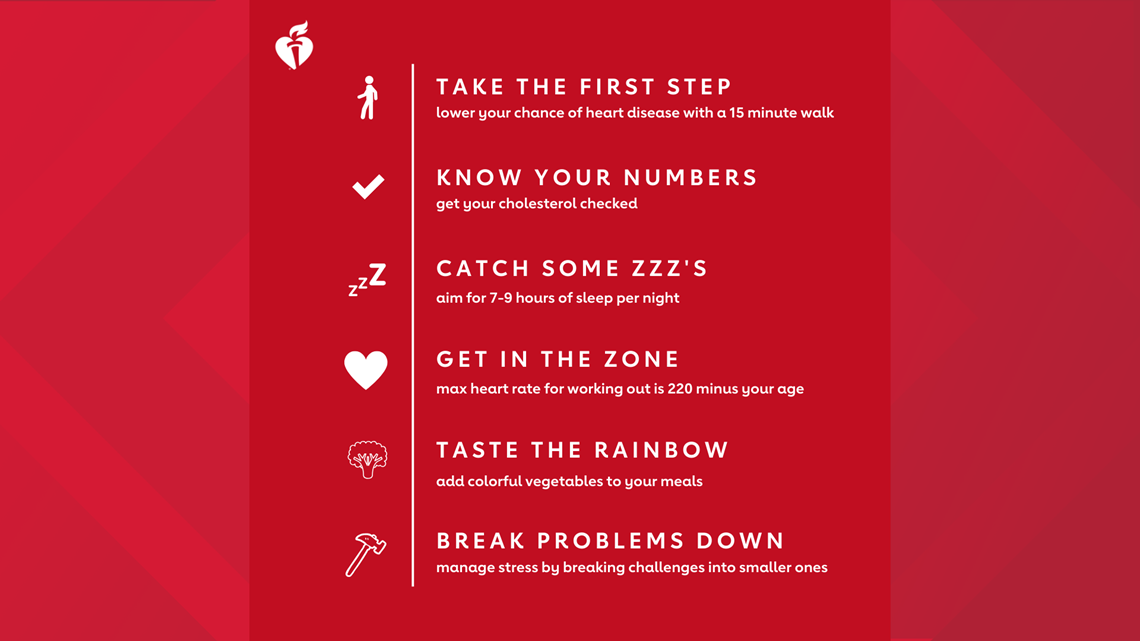WACO, Texas — February is heart awareness month and as the month comes to an end doctors want to remind people about the serious dangers of heart disease.
It's the number one killer in the U.S. Heart disease is responsible for about 1 in 4 deaths. It claims the lives of more than half a million people each year.
Howver some healthy habits can reduce your risk.
Stuart Jacobson, a cardiologist at Baylor Scott and White Hillcrest Hospital said you can start off by incorporating certain foods for a heart healthy diet.
"Healthy fats, things like olive oil, avocado, nuts, low saturated fats, low carbohydrates, and they should get at least 45 minutes of exercise, six days a week," Jacobson said.
According to the American Heart Association and the CDC, heart disease can be prevented by taking several steps.
-Quit smoking, this includes e-cigarettes.
-Maintain a healthy weight.
-Eat a healthy diet.
-Get some exercise.
-Treat other health conditions, like high blood pressure, high cholesterol and diabetes.


You should see your doctor right away, if you experience any symptoms.
"If anyone has symptoms of chest pressure or discomfort with exertion, especially associated with shortness of breath, nausea, sweating, they need to get in to be evaluated. If the symptoms are occurring during rest, they need to call 911 and get to the emergency room as soon as possible," Jacobson said.
Prevention is key for heart disease. If you've been diagnosed, lifestyle changes can help lower your risk for complications.
Helpful Links:
American Heart Association Heart Attack and Stroke Symptoms, click here.
American Heart Association Heart and Stroke Statistics, click here.
CDC Heart Disease facts, click here.
CDC Prevent Heart Disease, click here.
CDC Heart Disease and Family History, click here.

